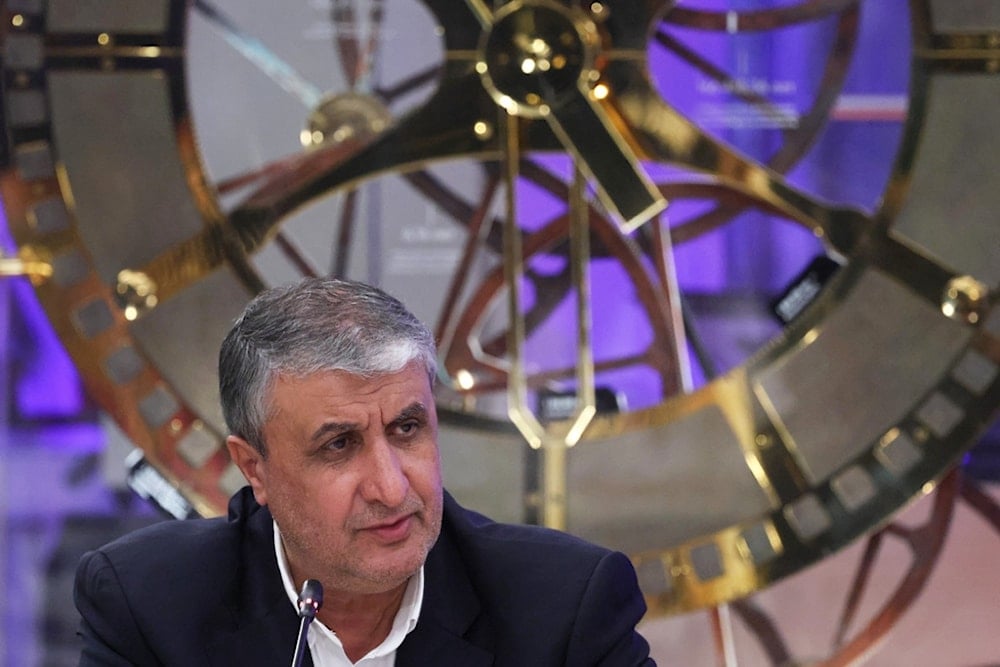Iran, Russia to build eight new nuclear power plants across country
Iran and Russia have agreed to jointly build eight nuclear power plants, aiming to expand clean energy production and boost Iran’s energy independence.
-

Mohammad Eslami, Iranian Vice President and the head of the Atomic Energy Organization of Iran (AEOI), speaks during a session at the World Atomic Week forum in Moscow, Russia, Thursday, September 25, 2025 (AP)
Iran is set to construct eight new nuclear power plants in cooperation with Russia as part of a major push to expand its clean and sustainable energy sector, according to Mohammad Eslami, head of the Atomic Energy Organization of Iran (AEOI).
Eslami announced on Sunday that a new agreement between Tehran and Moscow will pave the way for the joint construction of eight nuclear power plants. The move reflects the deepening Iran-Russia nuclear cooperation and their shared goal of enhancing energy security and independence.
Four plants planned in Bushehr
Under the new framework, four of the plants will be established in Bushehr, home to Iran’s first operational nuclear power facility, while four others will be built in different provinces, with their exact locations to be announced by the government.
Eslami said the plan aims to ensure a stable and clean supply of nuclear energy to meet the country’s rising electricity demand, positioning Iran as a regional leader in sustainable energy development.
The AEOI chief also highlighted progress on a nuclear power plant project in Golestan Province along Iran’s northern coasts, noting that a suitable site has already been selected following extensive studies. He added that the initiative represents a major step toward the geographic diversification of Iran’s nuclear infrastructure.
Iran targets 20,000 MW of nuclear energy
According to Eslami, the construction of these new plants with Russian assistance will enable Iran to achieve a production capacity of 20,000 megawatts of nuclear-generated electricity, advancing its long-term vision of energy independence and sustainable growth.
The collaboration reinforces Iran’s strategic partnership with Russia in the field of nuclear technology, as both nations seek to strengthen cooperation in clean energy and reduce reliance on fossil fuels.
Russia says relations with Iran are strategic
Russia’s ambassador to Tehran, Alexey Dedov, reaffirmed that relations between Moscow and Tehran are strategic and among the top priorities of Russian foreign policy, emphasizing that Russia will not bow to foreign pressure or seek an alternative to its partnership with Iran.
In an interview with Iran’s Fars News Agency, Dedov stated that Russia does not recognize restrictions resulting from the “snapback” mechanism and will not participate in forming any sanctions committee against Iran, adding that Moscow “does not see the trigger mechanism as having been activated.”
He underscored that military cooperation between the two nations follows international law and has never targeted any third party. Dedov further highlighted that nuclear cooperation is progressing “excellently,” especially in the construction of the second and third units of the Bushehr nuclear power plant, despite the sanctions imposed on both countries.
Regarding Syria, Dedov noted that there are realistic prospects for deepening relations between Damascus and Tehran, particularly in the economic sphere, adding that Russia will support this trajectory with practical steps once projects reach the implementation phase.

 3 Min Read
3 Min Read








